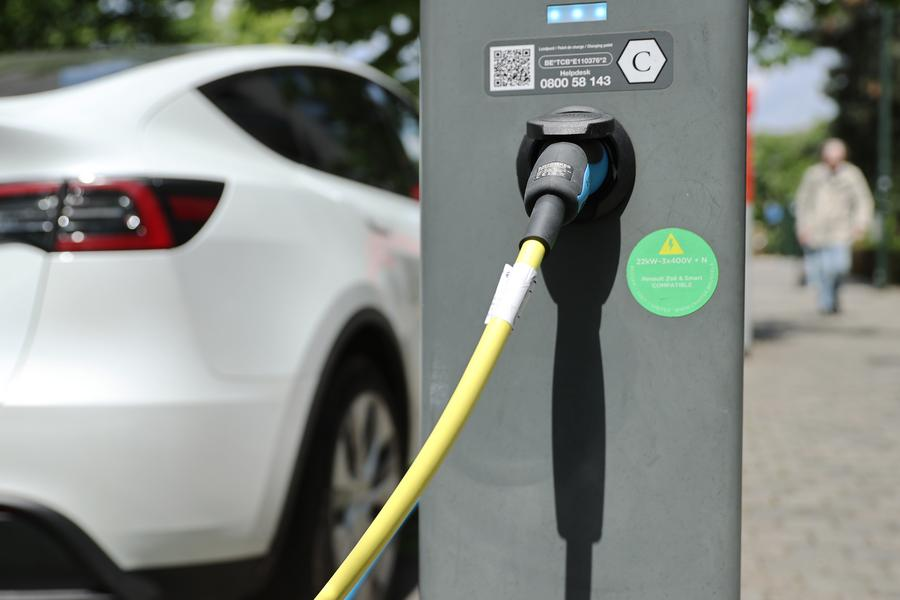By Daryl Guppy
On August 11, China issued guidelines aimed at accelerating green transition across all areas of economic and social development. The guidelines emphasize advancing a green and low-carbon transition in the energy sector, alongside promoting sustainable practices within the transportation sector.
However, despite China's commitment to promoting green transition and its progress in green technologies, such as electric vehicles (EVs), green trade barriers are escalating.
It is often alleged that China does not comply with the global rules-based order. This allegation does not stand up to closer investigation. China is one of the strongest supporters of the United Nations and associated global regulators like the World Trade Organization (WTO).
This is particularly evident when it comes to EVs.
Climate change poses the greatest global challenge that threatens all civilizations. The reduction of greenhouse gases and meeting the Paris Agreement climate targets are an essential part of meeting this challenge.
Emissions from automobiles are a major contributor to greenhouse gases, so there is a strong international move towards eliminating internal combustion engines and replacing them with EVs. As this is a global problem, it would be reasonable to expect that any progress along the path to increased EV take-up would be welcomed.
This is not the case.
The laggards in EV development are doing their best to frustrate this progress by unilaterally imposing tariffs on Chinese EVs to protect their own car industries. They are less developed because American and European car manufacturers have not put the same research and development effort into creating cost effective and advanced EVs.
China has become a world leader, partly by investing lots of money after identifying EVs as crucial for the environment and the economy. Ten years ago, China recognized EVs as the inevitable pollution solution. They prioritized research and development, and the result is seen on China's roads.
Sales of electric and plug-in hybrid vehicles in China made up 50.8 percent of total sales in July. No other country in the world comes close to reaching this figure.
China's consumers have a wide range of choices and price points when it comes to EVs. This is a vibrant, competitive market. A decade of research and development has delivered effective, economical and cost-efficient production.
Socially conscious global consumers want efficient and affordable EVs. Global demand is high, and it cannot be satisfied by traditional auto companies in Europe or the United States. They have not invested enough in green technology or production so they are unable to compete.

An electric car at a charging station near the European Commission building in Brussels, Belgium, June 6, 2024. [Photo/Xinhua]
Their solution is to use the blunt tool of tariffs to protect their inefficient and lagging industry by making Chinese EVs more expensive and unaffordable. The U.S. is good at this "strategy."
The U.S. unilaterally seeks to limit the entry of Chinese-made EVs, levying stunning tariffs of around 100 percent. The Joe Biden administration also imposed restrictions on vehicles containing battery components or raw materials sourced from "foreign entities of concern." The vehicles will no longer qualify for purchase tax credits of as much as $7,500. This is an additional hidden tariff.
The EU last month imposed provisional tariffs on some car imports from China that would raise rates by as much as 48 percent. The highest tariff, 37.6 percent, has been levied on Chinese state-owned automaker SAIC Motor Corp, in addition to the existing 10 percent rate, while Volvo Car AB parent Geely and BYD face additional charges of 19.9 percent and 17.4 percent, respectively.
These tariffs are either unilaterally imposed without any hint of reference to global trade rules, or they rely on contested interpretations of global trade rules.
China's response is notable because it chooses to challenge these protectionist tariffs through the trade dispute resolution mechanisms of the WTO.
China has filed an appeal with the WTO over the European Union's decision to impose anti-subsidy duties on Chinese EVs. A spokesperson of China's Ministry of Commerce said that "it severely violated WTO rules and undermined global cooperation on dealing with climate change."
China also initiated a dispute under the WTO framework after the United States excluded buyers who purchased electric vehicles with Chinese batteries from its subsidy scheme under the 2022 Inflation Reduction Act.
"What they protect are their underdeveloped industries, what they lose is their future development and what they reap is lose-lose," Lin Jian, spokesperson of China's Ministry of Foreign Affairs, said. "The global transition to a green economy and the fight against climate change will be undermined."
China continues to respect and work within the global rules structures of the WTO. China's support stands in stark contrast to the unilateral tariffs imposed by some other states who loudly claim that they support the rules-based order.
Daryl Guppy, a special commentator on current affairs for CGTN, is an international financial technical analysis expert. He has provided weekly Shanghai Index analyses for media in the Chinese mainland for more than a decade. Guppy appears regularly on CNBC Asia and is known as "The Chart Man." He is a former national board member of the Australia China Business Council.

 中文
中文



